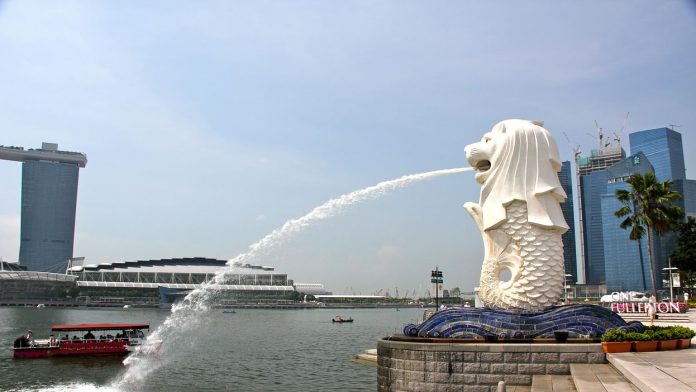This article is written by Shveni Pandit, pursuing Diploma in Intellectual Property, Media and Entertainment Laws from LawSikho. The article has been edited by Smriti Katiyar (Associate, LawSikho).
Table of Contents
Introduction
Intellectual property (IP) alludes to any man-made creation for which elite privileges are perceived by the public authority. In Singapore, there are three components by which IP privileges can be enrolled: a patent, a copyright or a trademark. Licensed innovation might be an imaginative interaction or plan, which is secured in Singapore under its patent laws. Instances of protected developments incorporate a medication’s equation, Ford’s mechanical production system or Apple’s iPod.
IP may likewise be the result of a craftsman or essayist as a melodic organization, writing, execution or piece of workmanship. These manifestations are given copyright insurance in Singapore.
The third kind of IP security, a brand name, awards organizations the selective freedoms to the name or image they use to check their organization and products. IP is a property that the proprietor can utilize; on the other hand, the proprietor can sell it or permit it for a benefit.
The author, in this paper, is going to discuss the legal provisions for protecting inventions in Singapore.
Singapore government supports the turn of events and enrollment of IP through liberal monetary motivating forces and an ideal expense system. For instance, Market Readiness Assistance (MRA) presented by International Enterprise Singapore expects to help Singapore-based organizations settle a piece of expenses (counting IP costs) while growing outside Singapore. The program subsidizes up to 70% of expenses for qualified exercises (covered at S$20,000 per organization per new market from 1 April 2020 to 31 March 2023), including documenting unfamiliar IP applications.
The MRA motivating force is notwithstanding the low generally speaking corporate assessment pace of 17%. Singapore likewise furnishes broad assessment arrangements with different nations for money made through IP; it offers tax breaks for money from nations, like the United States, that don’t have a duty settlement with Singapore.
Intellectual Property Office of Singapore (IPOS)
The IPOS is a legal board under the Ministry of Law that was formed in 2001 to carry out the country’s IP strategy. Initial public offerings help innovators, business visionaries and organizations make and ensure and influence their developments. You register your IP, face to face or online with IPOS. To assist you with securing your IP, it guides you to IP specialist organizations, for example, lawyers or advisors, and gives free classes. In the event that you have a question about enlistment, IPOS gives hearing and intercession administrations to determine it. It likewise assists you with getting financing for your undertaking by utilizing the worth intrinsic in your business’ IP. Initial public offerings are currently creating in-house search and assessment capacities in key mechanical regions to expand the proficiency of decreasing the expense of recording in Singapore.
As well as empowering the turn of events and enlistment of IP in Singapore, the public authority likewise overwhelmingly protects IP. IP privileges are regional, which implies, in case IP is enrolled in Singapore, those freedoms by and large will be protected there.
The Singapore government comprehends that the capacity to determine debates decently and effectively will draw in more IP improvement and enrollment, which will add fuel to the economy. Along these lines, the overall set of laws of courts; elective debate goal; and laws created by Parliament and judges are planned in light of IP freedom’s security.
Singapore’s general set of laws has gained notoriety for lack of bias, productivity and straightforwardness. In 2002, Singapore made a specific IP Court deal with progressively complex IP cases. In 2010, it set up a WIPO Arbitration and Mediation Center, the main office outside of Geneva. Cooperation among IPOS and WIPO permits gatherings to resolve IP questions without turning to suit, which decreases the time, cost and dissatisfaction included. At long last, the IP Academy of Singapore offers a Graduate Certificate in IP Law, guaranteeing the nation has lawyers and legal scholars prepared to deal with IP matters. Singapore ensures innovative plans and cycles through the Patents Act, which depends on the United Kingdom’s Patents Act of 1977. Singapore licenses are secured universally under the Patent Cooperation Treaty (PCT). As per IPOS, “a patent is a right allowed to the proprietor of a development that keeps others from making, utilizing, bringing in or selling the innovation without his authorization.” A patent in Singapore is legitimate for quite some time, in as much as the proprietor pays the yearly restoration charges. When enlisted, the proprietor can utilize, sell or permit the patent. Authorizing a patent, or a patent, or any kind of IP, can be rewarding. The subtleties of IP authorizing are past the extent of this article, yet you can learn more here. For the most part, the proprietor would be the designer, yet that may not be the situation if the creator creates it during their work at a business.
The rules Singapore utilizes in giving a patent is that the cycle or configuration
1. New: should be new and not known to the world.
2. Inventive: Even in case it is new, it should be an improvement that would not be clear to somebody with specialized ability or information in that field.
3. Industrial application: Should have useful applications.
The emphasis on the patent application fulfilling each of the three rules aligns Singapore with different nations like the United States and the United Kingdom. What’s more, Singapore won’t give licenses to creations that: 1) empower hostile, unethical or against social conduct, or 2) identify with the determination or treatment of the human or creature body.
A patent can be enrolled in one of two ways
1. Domestic application: Applicants wishing to apply for a patent in Singapore just can record with the Registry of Patents, which is essential for IPOS, face to face or on the web.
2. International application: Applicants wishing to apply for a patent in different nations can do as such under the PCT utilizing Singapore’s Registry of Patents as the getting office.
When enrolled, the patent can encroach. To decide encroachment, the courts analyze the two items or cycles. It won’t be viewed as an encroachment if the demonstration:
1. Was done secretly for non-business purposes,
2. Was accomplished for trial purposes,
3. Relates to the spontaneous arrangement of medication.
On the off chance that the item or cycle is found to encroach a patent, the court can arrange harm and order on the utilization of the encroaching item or interaction.
While numerous organizations may be acquainted with the wide thought of IP, understand that IP is simply an umbrella term – there are various privileges with various necessities for insurance to emerging and various terms of the assurance. Thus, there are significant inquiries that you should pose to yourself when considering how to secure your IP: What is the topic I am trying to ensure? Could the topic be ensured? Remembering the different expenses and advantages, which is the most ideal way of securing my IP?
What is known as Copyright?
What does copyright secure?
Copyright alludes to a heap of restrictive freedoms tons of the copyright, which might be the creators, managers or undertakings answerable for the creation or dispatching of the works. Copyright just ensure types of articulations; it doesn’t secure thoughts. There are two principle classifications of works or topics that are equipped for copyright security: creator works and enterprising works that assist to disperse the creator works. A few models incorporate books, PC programs, melodic creations, compositions and transmission.
When is a work fit for copyright assurance?
It isn’t important to enrol your work for it to be equipped for copyright assurance. Copyright consequently remains alive in the work whenever it is diminished to a material structure, (for example, recorded as a hard copy) and different lawful models are satisfied. Note that for copyright to stay alive, your work can’t be simple duplicates of existing works and you, as the creator, more likely than not consumed adequate ability, scholarly exertion, innovativeness or judgment in its creation.
How long does copyright endure?
The span of copyright security relies upon the sort of work being referred to. Outstandingly, on 17 January 2019, the Ministry of Law and Intellectual Property Office of Singapore (“IPOS”) delivered subtleties of their proposed changes to the Copyright Act. The following is an outline of the current term of copyright assurance and the proposed corrections.
What are trademarks?
Trademarks allude to signs that recognize specific labour and products that are given by an individual or an element (for instance, your image name or logo). In such a manner, the proprietor of an exchange imprint would need to get trademark assurance with the goal that the person in question holds the selective right to utilize them to distinguish the particular labour and products asserted, sell or permit the privileges to utilize the exchange stamps or utilize the trademarks as credit security.
How would I secure trademark assurance?
In Singapore, it is possible to get trademark insurance by enrolling your imprint under the Trade Marks Act. This should be possible by documenting an application with IPOS. Enlistment is by all appearances confirmation of possession, entitling you the elite right to utilize the enrolled mark.
On the off chance that you decide not to enlist or have neglected to enlist your imprint, it is as yet conceivable to look for a response against supposed infringers through the customary law misdeed of passing off. In contrast to an activity for encroachment of an enlisted mark, the misdeed of passing off must be set up on the off chance that you demonstrate, among others, that your business includes generosity inside Singapore, which might represent a few challenges for recently settled businesses.
How long does exchange check assurance last? Under the enrolled framework, exchange mark insurance is given for an underlying time of 10 years. This period can be broadened endlessly in case enrollment is restored at regular intervals.
What is a patent?
When you successfully register a patent, the owner will be granted the exclusive right to use the patent and to prevent others from making, using, distributing or selling inventions without the owner’s consent. Importantly, patents are not limited to technological inventions and have been granted across numerous industries, ranging from human necessities to electricity to textiles and paper.
How do I acquire patent protection in Singapore?
In Singapore, you will need to file a patent application with IPOS in order to obtain patent protection. On a practical note, patent applications are relatively costly and time-consuming. As the state is essentially granting you a monopoly over your invention during the period of protection, your invention must meet stringent requirements. You should therefore ensure that your invention meets the criteria for registration as well as strategically consider your business needs and how you may wish to commercially exploit the patent when (and if) it is granted.
IPOS recommends that any potential applicant takes the following steps before applying for a patent:
- Check whether you have disclosed your invention to anyone else: The disclosure of an invention might affect the patentability of an invention. If your invention is publicly known, the invention will not be regarded as being novel (with some statutory exceptions) and hence, will not be patentable.
- Check whether there are any existing inventions that are similar to yours: Even if you have created your invention independently, there might be an existing invention that is similar to yours. In such a case, you might be sued and be found liable for patent infringement instead. To this end, there are online databases that are available for you to conduct searches.
Additionally, your invention must reveal an inventive step, be capable of industrial application and must not be offensive, immoral or anti-social.
If you have doubts as to whether your invention can qualify for patent protection, it may nevertheless be protected as a trade secret or as confidential information, which will be elaborated below.
How long does patent protection last?
Once granted, patent protection lasts for 20 years from the date of filing of the patent application, subject to the payment of the requisite renewal fee. The protection can be extended for up to 5 years if there was an unreasonable delay in the issue of the patent.
Conclusion
In 2013, the Singapore government rolled out its Intellectual Property (IP) Hub Master Plan, a ten-year road map for making the small island nation the preeminent locale for developing, registering and defending intellectual property. As part of that plan, the Singapore government proposed the introduction of an IP-Box tax regime similar to the ones in the Netherlands and Ireland. In addition to its IP-Box tax initiative, the Master Plan proposes improvements in training its workforce to create IP and in its institutions to protect that IP. Many of those improvements are aimed at the Intellectual Property Office of Singapore (IPOS). With its Master Plan, Singapore intends to become the preeminent locale for IP development, registration and protection.
Singapore provides one of the most robust legal regimes for the protection of intellectual property rights. World Economic Forum’s Global Competitiveness Report 2019 ranked Singapore second in the world and first in Asia for its IP protection framework. Some of the leading IP-focused companies of the world have selected the country as their preferred location for R&D due to these protections.
Students of Lawsikho courses regularly produce writing assignments and work on practical exercises as a part of their coursework and develop themselves in real-life practical skills.
LawSikho has created a telegram group for exchanging legal knowledge, referrals, and various opportunities. You can click on this link and join:
https://t.me/joinchat/J_0YrBa4IBSHdpuTfQO_sA
Follow us on Instagram and subscribe to our YouTube channel for more amazing legal content.
 Serato DJ Crack 2025Serato DJ PRO Crack
Serato DJ Crack 2025Serato DJ PRO Crack











 Allow notifications
Allow notifications


